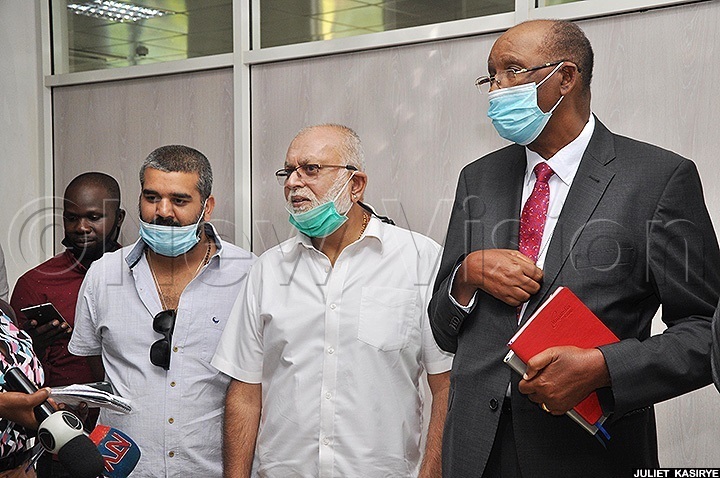Sudhir case goes to the Supreme court
Jul 01, 2020
Prof. Mutebile revealed that Sudhir Ruparelia had signed a Settlement and Release Agreement with the Central Bank on 20th March 2017 in which he undertook to pay a sum of $60m (sh224.6b).

KAMPALA - Bank of Uganda (BoU) has taken the fight against tycoon Sudhir Ruparelia and Meera Investments Limited to the Supreme Court after losing out at the High Court and the Court of Appeal.
The court case, Crane Bank Limited (in Receivership) vs. Sudhir Ruparelia and Meera Investments Limited was initially thrown out after Justice David Wangutsi ruled that by the time of filing the case, Crane bank was non-existent and could not sue anyone.
"BoU as receiver of Crane Bank is dissatisfied with the rulings of both the High Court and the Court of Appeal and has taken a decision to appeal to the Supreme Court in addition to pursuit of other legal recovery options," Prof. Emmanuel Tumusiime-Mutebile, the Central Bank governor said in a signed statement.
"BoU wishes to reassure the public that it is committed to pursuing this matter to its logical conclusion," he added.
Prof. Mutebile explained that Crane Bank had significant and increasing liquidity problems that could not be resolved without the Central Bank's intervention given that Crane Bank had failed to obtain credit from anywhere else.
An inventory by external auditors found that the assets of Crane Bank were significantly less than its liabilities. The Governor said that in order to protect the financial system and prevent loss to the depositors of Crane Bank, Bank of Uganda had to spend public funds to pay Crane Bank's depositors.
A subsequent forensic investigation as to why Crane Bank became insolvent, Prof. Mutebile explained that a number of wrongful and irregular activities linked to Sudhir Ruparelia and Meera Investments Ltd were discovered.
"These findings form the basis of the claims in the lawsuit by Crane Bank. The suit was necessary for recovery of the taxpayers' money used to pay depositors' funds as well as the other liabilities of Crane Bank," he explained.
"BoU set about resolving the affairs of Crane Bank in a manner that would safeguard depositors, preserve the safety of the financial system, and restore the taxpayers' money that had been deployed to prevent loss to depositors and a potential financial crisis," he added.
Prof. Mutebile revealed that Sudhir Ruparelia had signed a Settlement and Release Agreement with the Central Bank on 20th March 2017 in which he undertook to pay a sum of $60m (sh224.6b).

In the agreement, Sudhir also agreed to return land titles that had been irregularly taken from Crane Bank, which is the actual owner of the branches on which its branch network sat across the country.
However, Sudhir only paid $8m (about sh30b) and then refused to comply with his undertakings, leading to the initial court case. The main allegations of the case are that Sudhir illegally and secretly owned 100% shareholding in Crane Bank in breach of the Financial Institutions Act, 2004.
Also that using that position of control, Sudhir wrongfully and illegally extracted from Crane Bank amounts totalling to $92,830,172 (about sh347.b) and sh8.3b. The Central Bank further alleged that Sudhir transferred freehold property beneficially owned by Crane Bank into the names of Meera Investments Ltd.
Sudhir and his family are the majority shareholders in Meera. The transfer rendered Crane Bank a tenant on its own property with a liability to pay rent to Meera Investments Ltd.
Prof. Mutebile argued that receivership does not take away the corporate personality of a company which includes the right to trace and recover assets and the right to sue for those assets.
"The public is also invited to note that neither the High Court nor the Court of Appeal has yet considered or taken a decision on the claims for wrongful and illegal extraction of funds from Crane Bank as claimed in the main suit," he argued.
The governor pointed out that the judgements of the High Court and Court of Appeal set a precedent that limits the Central Bank's capacity to resolve banks in a manner that ensures accountability for mismanagement of depositor funds and promotes good corporate governance in the banking industry.
